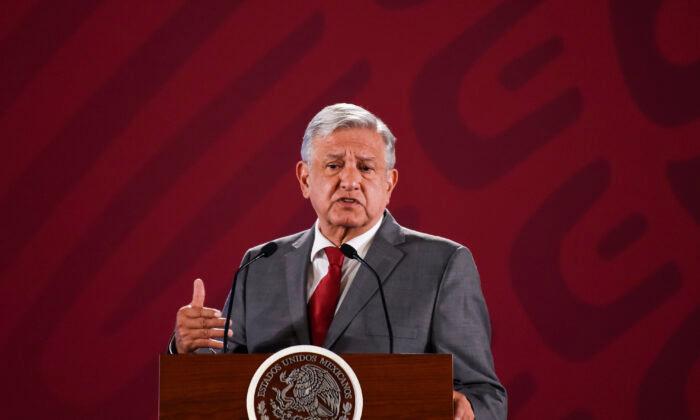Mexico’s president publicly pledged to lead a global effort to fight against Big Tech censorship after a number of major companies moved to deplatform President Donald Trump.
President Andrés Manuel López Obrador said he is reaching out to other governments already. He criticized the power Big Tech companies wield and said they should not be able to stifle free speech.
“How can a company act as if it was all powerful, omnipotent, as a sort of Spanish Inquisition on what is expressed?” he asked.
Experts have told The Epoch Times this censorship by Big Tech could cause countries to consider developing their own platforms rather than depend on a handful of private U.S. companies that have the ability to cut off communication to millions. Other concerns have also been raised, such as what to do about Section 230, an outdated law protecting platforms from litigation for content their users post, which critics and lawmakers say shields the companies too much and needs to be repealed or reformed.Mexico’s Foreign Relations Secretary Marcelo Ebrard said they have already started communications with a number of countries for their campaign.
“Given that Mexico, through our president, has spoken out, we immediately made contact with others who think the same,” Ebrard said, noting they had heard from officials in France, Germany, the European Union, Africa, Latin America and Southeast Asia.
“The president’s orders are to make contact with all of them, share this concern and work on coming up with a joint proposal,” Ebrard said. “We will see what is proposed.”
Twitter has permanently banned Trump’s account, while Facebook and Instagram have blocked him from posting on their platforms at least until the transition to President-elect Joe Biden is complete. Snapchat and Twitch have also disabled Trump’s account. The companies acted against Trump after Democrats and some Republicans accused him of inciting the violence at the U.S. capitol on Jan. 6.It’s not just social media companies who have moved to restrict Trump. Stripe, which handles payments and transactions on many websites, has said it will no longer process payments for Trump’s campaign.
Merkel’s spokesman, Steffen Seibert, said the chancellor believes freedom of opinion is an essential right of “elementary significance.”
“This fundamental right can be intervened in, but according to the law and within the framework defined by legislators—not according to a decision by the management of social media platforms,” Seibert said. “Seen from this angle, the chancellor considers it problematic that the accounts of the U.S. president have now been permanently blocked.”
In recent days officials from Poland, Australia, and other countries have also come out to publicly criticize the censorship of Trump by Big Tech companies.
On Tuesday López Obrador posted an invitation on Facebook for his followers to switch to Telegram, a cloud-based instant messaging software and application service. He said private companies should not have the right to decide who can speak.






Friends Read Free